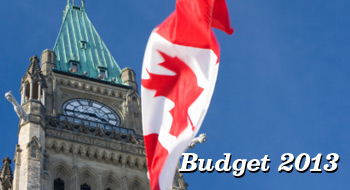
Originally from our sister publication, Advisor.ca
As it relates to Canada’s retirees, and near retirees, Finance Minister Jim Flaherty’s eighth, and some say his last, federal budget has received mixed reactions from industry stakeholders.
They say its provisions neither improve nor impair the quality of life led by the nation’s seniors.
The Canadian Association of Retired Persons (CARP) was first out of the gate to express disappointment, arguing the budget did little to address priority concerns—retirement security, seniors’ poverty, equitable access to healthcare, affordable drugs and home care.
Read more on the 2013 federal budget:
- Ottawa urges implementation of PRPPs
- Budget: Impact of taxation rules on pensions
- Federal Budget 2013: Closing the loopholes
Susan Eng, CARP’s vice-president for advocacy, called measures for seniors modest.
“While primarily a provincial responsibility, federal leadership and funding are needed, and the modest measures are welcome but insufficient on their own to make a material difference in how people today can access these services,” she says. “The social safety net has been fraying through neglect or deliberate government action.”
CARP, says Eng, will continue to push for reversal of the old age security decisions, for increased levels of income support for seniors living in poverty and “equitable access to affordable drugs regardless of postal code.”
Kathleen Wronski, director, wealth management, at Richardson GMP, agrees the budget was thin for older Canadians but adds that’s not necessarily bad news.
In reference to the government’s decision not to introduce new taxes or decreases to transfer payments made to the provinces, which fund healthcare, Wronski says “all the good news was on the no-news front.”
Similar sentiments were expressed by Ian Russell, president and CEO of IIAC.
“The good news is that programmes [such as the Canada Pension Plan, tax-free savings accounts and RRSPs], which have had a positive response from Canadians, are very much left in place,” he says. “Retirement instruments that retirees depend on, and the savings instruments that near-retirees depend on, are working and are on sound footing.”
The other positive, he points out, is that the government has “earmarked substantial increases for healthcare spending well into the future.”
Russell, however, says he’d have liked to see contribution limits on the RRSP raised, along with removal of taxes on group RRSP contributions.
Read: Small biz gets hiring tax credit
In a less-favourable move, the government announced plans to shut down life-insured annuity arrangements. That decision will mainly impact high-net-worth seniors, says Jason Safar, personal tax, with PwC.
“[Life-insured annuities] are a way to strip funds out of a corporation to an estate without paying taxes,” he says. “The government now says if you have one of those, we aren’t not going to let you pay out the capital dividend, or let you deduct insurance premiums or the interest expense.”
The rule takes effect as soon as the budget’s passed, he adds.
On a more positive note, the government has continued efforts to lighten the tax burden on seniors. Starting this year, single seniors with annual income below $19,892 and senior couples with income below $39,784 will not be required to pay federal income tax.
And, for senior couples, the GST rate has been lowered from 7% to 5%. This reduction could realize savings of $3,000 in tax relief for couples with a combined income of $80,000.
Proving detractors wrong, Flaherty announced that the government’s determined to push ahead with the implementation of the federal pooled registered pension plan (PRPP) regulatory framework.
“The income tax rules for PRPPs are also now in force [and] will apply to both federally and provincially regulated PRPPs,” the budget announced.
The federal government has, however, left it up to individual provinces to introduce their own enabling legislation to make PRPPs available throughout Canada.
